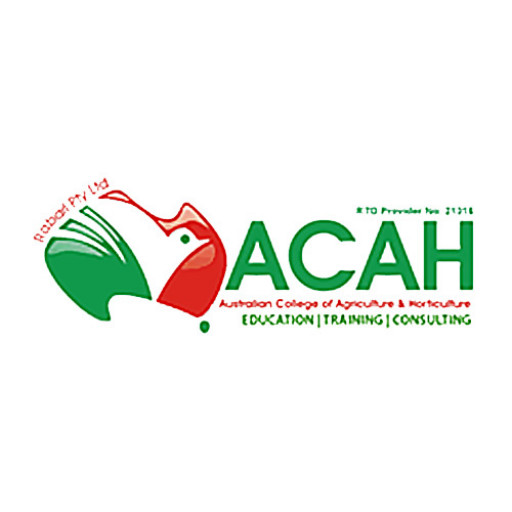Commercial Composting program at the Australian College of Agriculture & Horticulture is designed to equip students with the practical skills and theoretical knowledge necessary to excel in the sustainable waste management industry. This comprehensive course covers a broad range of topics, including the principles and practices of composting, waste management strategies, soil health, environmental impacts, and operational management of commercial composting facilities. Students will learn about different composting methodologies such as windrow, in-vessel, and aerated static pile systems, gaining insights into technology application, efficiency optimization, and compliance with environmental regulations.
The program emphasizes hands-on training through on-site practical experiences, enabling students to develop competencies in site assessment, process control, troubleshooting, and quality assurance. Participants will also explore the integration of composting systems within broader waste diversion and recycling programs, promoting holistic approaches to waste reduction. With a focus on sustainability, the curriculum encourages innovative thinking to improve composting processes, reduce greenhouse gas emissions, and enhance product quality for agricultural and landscaping uses.
Graduates of this program will be equipped to undertake roles across the waste management sector, including operations management, environmental consultancy, and enterprise development. The course prepares students to contribute to the development of sustainable practices in the composting industry, supporting Australia's environmental goals and circular economy initiatives. The program's delivery combines theoretical instruction delivered by industry experts with practical exercises, site visits, and project work to ensure a well-rounded educational experience.
Whether aspiring to manage commercial composting facilities or seeking to expand expertise in waste management, the Commercial Composting program offers valuable training tailored to current industry needs. It also provides pathways for further study or certification, reinforcing a commitment to continuous professional development within the environmental and agricultural sectors. Join the Australian College of Agriculture & Horticulture to advance your career and contribute to environmentally responsible waste management solutions through expert training in commercial composting.
Commercial Composting is a comprehensive program designed to equip students with the essential skills and knowledge required to excel in the sustainable waste management industry. This course explores the fundamental principles of composting, including organic waste decomposition, composting techniques, and the environmental benefits of recycling organic materials. Participants will learn about various composting methods such as windrow, in-vessel, and static pile systems, and understand how to select appropriate techniques based on different scales and types of waste. The program also covers the operational aspects of commercial composting facilities, including site assessment, design, and management practices that optimize efficiency and product quality.
Students will gain practical skills in managing composting processes, conducting quality control, and troubleshooting common issues that arise during compost production. The curriculum emphasizes environmental sustainability and compliance with regulatory standards, ensuring graduates are well-versed in the legal and safety considerations relevant to the industry. Additionally, the course delves into the marketing and sale of compost products, highlighting strategies for developing sustainable business operations.
Throughout the program, learners will engage in hands-on training via industry placements, workshops, and laboratory exercises that reinforce theoretical concepts. They will also explore emerging technologies and innovations in composting, such as bio-remediation techniques and the integration of composting into circular economy models. By the end of the course, participants will be prepared to work effectively in commercial composting facilities, contribute to environmental conservation efforts, and promote sustainable waste management solutions within various sectors, including agriculture, landscaping, and municipal services. The program is suitable for individuals seeking to advance their careers in environmental management, waste processing, or starting their own composting enterprise.
Program requirements for the Commercial Composting course at the Australian College of Agriculture & Horticulture include a combination of theoretical knowledge and practical skills designed to prepare students for employment in the composting industry. Applicants typically need to have a minimum of Year 10 secondary school certification or equivalent. Prior experience in horticulture, agriculture, environmental management, or related fields can be advantageous but is not mandatory. Prospective students must demonstrate a genuine interest in waste management, sustainable practices, and environmental health.
The program covers essential competencies such as understanding composting processes, feedstock management, operational techniques, and quality control measures. Enrollees are expected to complete a series of modules that include both classroom-based learning and hands-on training in compost production sites. To achieve certification, students must successfully complete all assessments, including written tests, practical demonstrations, and project work. These assessments evaluate their ability to design, implement, and monitor composting systems effectively and efficiently.
Participation in work placements or industry internships may be a requirement, providing real-world experience and exposure to commercial composting facilities. Additionally, students should possess good communication skills, the ability to work independently and as part of a team, and adhere to relevant health and safety regulations applicable to operational environments. The program may also require students to have access to basic personal protective equipment, such as gloves, safety glasses, and appropriate clothing, to ensure safety during practical activities.
Graduates of the program are expected to have a comprehensive understanding of sustainable waste management practices, be capable of operating commercial composting equipment, and possess the skills to oversee composting projects from conception to completion. Overall, the course aims to produce environmentally conscious professionals equipped with the necessary skills to enhance the composting industry and promote sustainable waste recycling practices across various sectors.
Funding options for the Commercial Composting program at the Australian College of Agriculture & Horticulture include several pathways designed to support students financially throughout their studies. Domestic students may be eligible for government bursaries, including VET Student Loans, which provide financial assistance for further education and training courses that meet certain criteria. These loans can cover tuition fees for eligible students, making vocational education more accessible. Additionally, students might explore financial aid options such as payment plans or scholarships offered directly by the college or external organizations dedicated to supporting agricultural and horticultural education.
International students seeking to enroll in the Commercial Composting program should consider scholarships available through the Australian government or international scholarship programs. While specific scholarships for this program are limited, general international student scholarships could provide partial funding depending on eligibility. Private funding sources, including family support or loans, are also common ways students finance their studies.
Students are encouraged to consult the college’s admissions and finance departments to explore tailored financial plans and assistance programs. Furthermore, part-time work opportunities, either on-campus or nearby employment, can help students supplement their income during their studies. The college often provides guidance on gaining employment within the agriculture and environmental management sectors, aligning with students’ career goals and financial needs.
Overall, financing a program at the Australian College of Agriculture & Horticulture involves leveraging government-funded schemes, institutional financial aid, scholarships, and personal or external loans. Prospective students should review the latest information directly from the college’s official website or contact their admissions office for detailed, up-to-date guidance on available financial support options, eligibility criteria, and application processes.
Commercial Composting at the Australian College of Agriculture & Horticulture is a specialized program designed to equip students with the skills and knowledge necessary to manage and operate commercial composting facilities effectively. The curriculum covers key aspects such as waste management, composting processes, environmental sustainability, and business management within the composting industry. Students learn about different composting techniques, including aerated static pile, windrow, and in-vessel systems, along with the conditions required for optimal compost production. The program emphasizes practical training through hands-on experience at real composting sites, enabling students to understand the operational challenges and solutions involved in large-scale composting operations.
Additionally, coursework includes training on the selection and management of raw materials, maintaining microbial activity, and ensuring compliance with environmental regulations. Students also explore marketing strategies for compost products, understanding the market demand for organic and sustainable soil amendments. The program aims to produce graduates who can contribute to sustainable waste management practices, improve soil health, and support environmental conservation efforts.
Students may engage with industry professionals through site visits, guest lectures, and industry projects, gaining insights into current trends and innovations in commercial composting. Upon completion, graduates can pursue careers in waste management organizations, agricultural businesses, local councils, or start their own composting enterprises. The program promotes a comprehensive understanding of the biological, chemical, and physical processes involved in composting, integrating sustainability principles with business acumen.
By combining theoretical knowledge with practical skills, the Commercial Composting program prepares students to meet the growing demand for environmentally responsible waste recycling solutions, contributing to Australia's efforts in reducing landfill waste and promoting sustainable agriculture practices.







